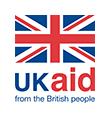Ahead of the Nutrition for Growth event on June 8, The Lancet has today published an important new series on maternal and child undernutrition. One of the series papers, co-authored by our own Lawrence Haddad, looks at how enabling environments and processes can be cultivated to address undernutrition and, ultimately, translate into better results on the ground. The paper references the Nutrition Commitment Index component of HANCI.
To read the full article follow the link below:
The politics of reducing malnutrition: building commitment and accelerating progress
Summary
In the past 5 years, political discourse about the challenge of undernutrition has increased substantially at national and international levels and has led to stated commitments from many national governments, international organisations, and donors. The Scaling Up Nutrition movement has both driven, and been driven by, this developing momentum. Harmonisation has increased among stakeholders, with regard to their understanding of the main causes of malnutrition and to the various options for addressing it. The main challenges are to enhance and expand the quality and coverage of nutrition-specific interventions, and to maximise the nutrition sensitivity of more distal interventions, such as agriculture, social protection, and water and sanitation. But a crucial third level of action exists, which relates to the environments and processes that underpin and shape political and policy processes. We focus on this neglected level. We address several fundamental questions: how can enabling environments and processes be cultivated, sustained, and ultimately translated into results on the ground? How has high-level political momentum been generated? What needs to happen to turn this momentum into results? How can we ensure that high-quality, well-resourced interventions for nutrition are available to those who need them, and that agriculture, social protection, and water and sanitation systems and programmes are proactively reoriented to support nutrition goals? We use a six-cell framework to discuss the ways in which three domains (knowledge and evidence, politics and governance, and capacity and resources) are pivotal to create and sustain political momentum, and to translate momentum into results in high-burden countries.
For more resources and links to research relating to HANCI visit our resources for researchers page.




The more attention we can gather in our efforts to provide a voice for the children, as well as to convince those in positions of power and authority to act, the greater chance we have of seeing the improvement we all know is possible. I have lived and worked in Botswana since 1981, and I know that we should be far ahead of where we are in terms of our ability to pay for the actions needed relating to nutrition, under-nutrition and seeing that all children reach their full biological/genetic potential. We will continue to work with all stakeholders towards the goal of greater commitment and understanding, which will lead us to joining Malawi at the top of the list.